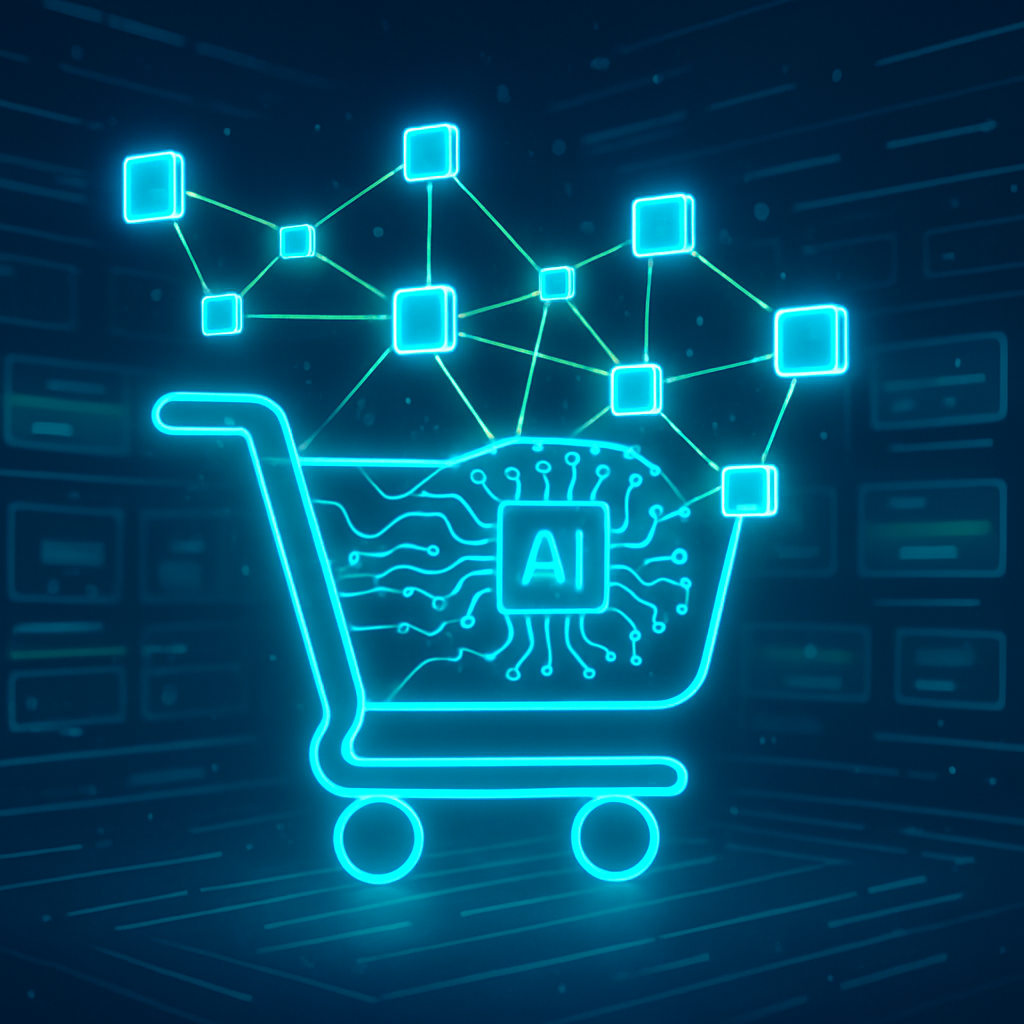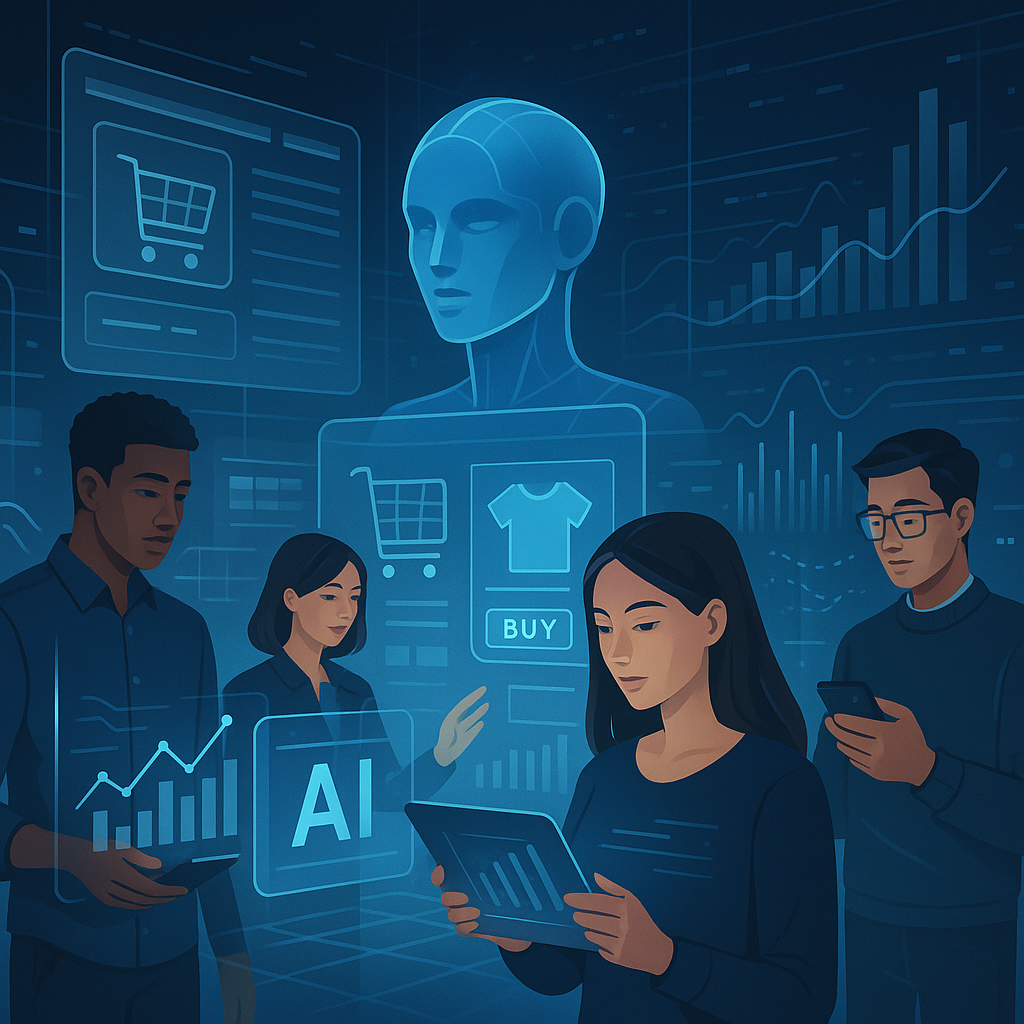
How AI and Blockchain Are Transforming Digital Commerce Experiences
The Digital Commerce Landscape in 2025
As digital and ecommerce-and-e-business-in-digital-retail" class="text-blue-600 hover:text-blue-800 dark:text-blue-400 dark:hover:text-blue-300">eCommerce ecosystems evolve rapidly, 2025 marks a pivotal point where two transformative technologies — Artificial Intelligence (AI) and blockchain — join forces to reshape the online shopping experience. Beyond mere trends, these innovations are rewriting the foundational rules of how consumers discover, engage with, and transact on digital commerce platforms.
Artificial Intelligence: Personalization and Intelligent Automation
Hyper-Personalized Shopping Experiences
AI’s prowess in data analytics and machine learning enables businesses to analyze vast amounts of customer data to offer deeply personalized shopping journeys. Unlike earlier personalization methods based solely on browsing or purchase history, current AI models incorporate real-time context such as mood inference from social media, contextual weather data, and even biometric feedback to tailor recommendations and promotions more precisely.
For example, a shopper browsing a fashion ecommerce platform may receive suggestions not just based on past purchases but also on AI-analyzed trending styles in their local region and upcoming calendar events. This level of contextual personalization enhances customer engagement and satisfaction significantly.
Voice and Visual Search Integration
Modern ecommerce interfaces increasingly embrace AI-powered voice assistants and visual search tools. Shoppers can now upload images of desired products or use voice commands to find items quickly, bypassing traditional text-based searches. These intelligent interfaces reduce friction and create smoother, more intuitive online shopping experiences.
Dynamic Pricing and Inventory Management
AI-driven dynamic pricing models allow retailers to adjust prices in real-time based on demand fluctuations, competitor pricing, and inventory levels. This agility ensures competitiveness and higher profit margins.
Simultaneously, AI-powered predictive analytics optimize inventory by forecasting demand with unprecedented accuracy, minimizing stockouts or overstock scenarios that traditionally challenge ecommerce operations.
Blockchain: Trust, Transparency, and Security Enhancements
Decentralized and Immutable Transaction Ledgers
Blockchain technology provides an immutable ledger that enhances transparency and security for both merchants and consumers. Each sale, return, or refund is recorded in a decentralized way, drastically reducing instances of fraud, chargebacks, and unauthorized transactions.
Customers enjoy greater confidence knowing their transactions are verifiable and tamper-proof, while businesses benefit from streamlined reconciliation processes across international markets.
Smart Contracts Revolutionizing Transactions
Smart contracts — self-executing agreements with contract terms encoded on blockchain — automate complex ecommerce workflows. For example, payment release upon delivery verification or automatic warranty activations can be handled seamlessly without manual intervention, reducing administrative overhead and dispute cases.
Enhancing Supply Chain Transparency
Consumers increasingly demand visibility into product origins, authenticity, and sustainability. Blockchain’s ability to provide end-to-end traceability ensures that every stage of a product's lifecycle, from raw materials to delivery, is recorded and accessible.
This transparency combats counterfeit goods, verifies ethical sourcing, and fosters trust by allowing shoppers to scan products and instantly review verified product histories.
Synergistic Benefits of Combining AI and Blockchain
Improved Fraud Detection and Risk Management
By integrating AI’s pattern recognition capabilities with blockchain’s immutable records, ecommerce platforms can detect anomalies and suspicious behaviors far more effectively. AI models continuously learn evolving fraud patterns, while blockchain provides secure, auditable transaction data to inform these models.
Personalized Privacy with Data Ownership
Blockchain enables consumers to own and control their data through decentralized identities, deciding who can access their information. Coupled with AI, this empowers personalized offers without compromising privacy.
For instance, AI can perform on-device analysis of data entrusted through blockchain-based permissions to craft tailored recommendations without exposing sensitive personal information to the retailer’s servers.
Decentralized Marketplaces and Trustless Commerce
The fusion of AI and blockchain fosters new models of decentralized ecommerce, where peer-to-peer transactions can occur without relying on centralized authorities. AI assists in matching buyers and sellers efficiently, automating negotiation and dispute resolution, while blockchain guarantees trustworthiness and payment security.
Practical Innovations Shaping Digital Commerce Today
AI-Enhanced NFT Marketplaces
Non-fungible tokens (NFTs) have expanded beyond digital art into ecommerce realms, verified by blockchain ownership and authenticity. AI algorithms curate and recommend NFTs based on buyer preferences and market trends, creating a dynamic shopping environment where digital collectibles and goods intersect.
Augmented Reality (AR) Powered by AI and Blockchain
AR features enhanced by AI offer virtual try-ons and product visualizations, enriching online store engagement. Blockchain certifies virtual goods and interactions, ensuring ownership and enabling innovative loyalty programs rewarding consumers with tokenized assets.
Challenges and Future Outlook
Despite exciting advancements, widespread adoption faces hurdles including scalability of blockchain networks, energy consumption concerns, regulatory landscapes, and the need for consumer education on privacy and data control.
Ongoing research focuses on energy-efficient consensus mechanisms and privacy-preserving AI models that align with evolving digital commerce demands. The next decade will likely see these technologies mature into ubiquitous tools that blend seamlessly into everyday online shopping.
Conclusion: Toward a Smarter, More Secure Digital Economy
The convergence of AI and blockchain in digital commerce creates transformative opportunities for both businesses and consumers. Enhanced personalization, operational efficiency, and transparent security set new benchmarks for online shopping experiences, redefining what digital commerce means in 2025 and beyond.
As these technologies continue integrating, the future promises ecommerce ecosystems that are intelligent, trustworthy, and customer-centric, establishing a resilient foundation for the ever-expanding digital economy.






